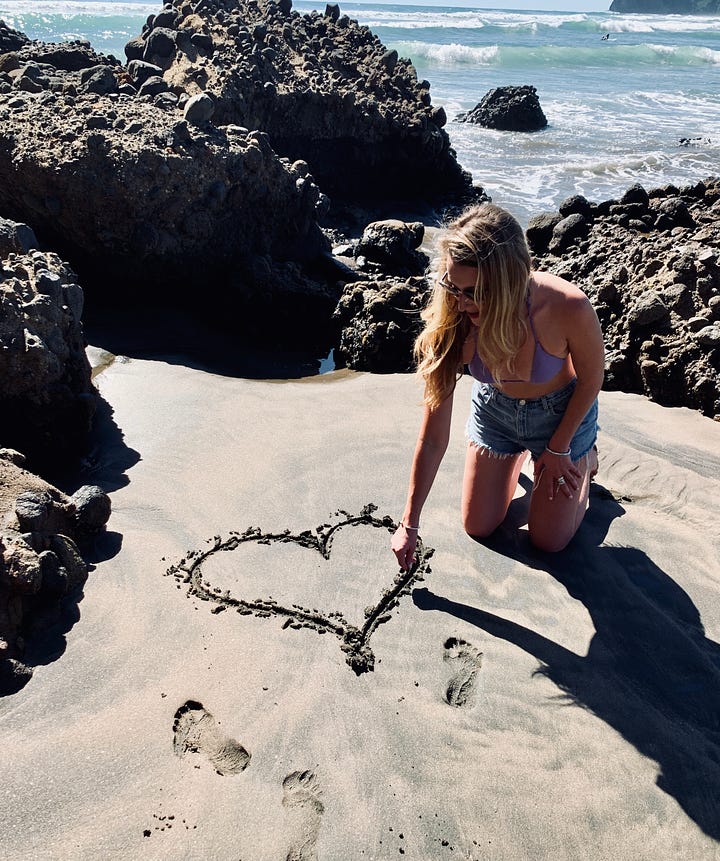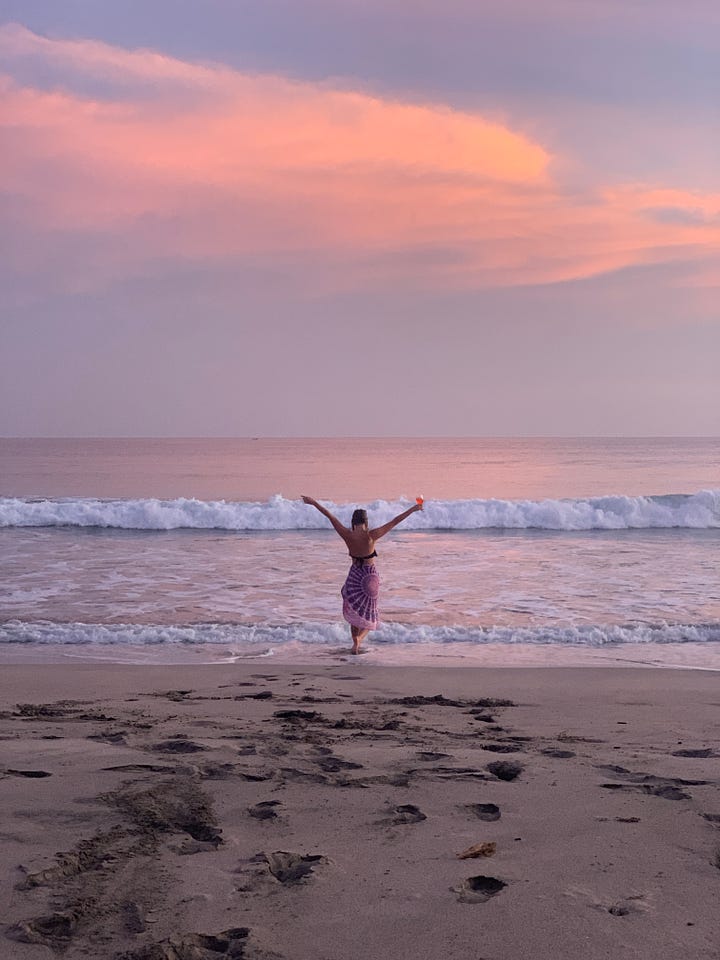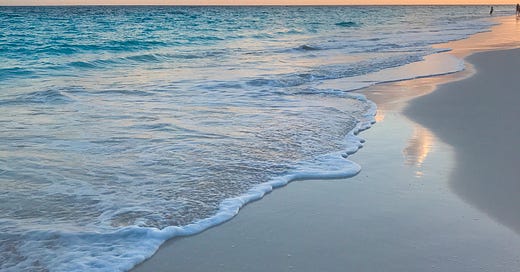But first, a moment of recognition for today, because while it’s uncomfortable to remember, may we always remember — never forget 9/11.
A couple weeks ago, I realized the correlation of cake and the ocean extends beyond the 2015 DNCE hit chanted by Joe Jonas. I was listening to an episode of the Hidden Brain podcast, cryptically titled “Making the World Sparkle Again.” I’ve written about this eye-opening podcast series before and this episode happens to draw parallels to the art of savoring.
This time, though, instead of just learning about the phenomenon of the Hedonic Treadmill — the act of getting used to something whether pleasant or unpleasant — I was inspired by techniques to thwart habituation.
In a focused study about when travelers are most happy on a vacation, the episode’s guest, neuroscientist Tali Sharot, found that holiday takers’ happiness decreases as their trip evolves.
“Holidaymakers are happiest when 43 hours in,” Sharot reported. “Why? Because 43 hours allowed them time to get settled and unpack so they could really concentrate and have fun. On day 8 they weren’t as happy as they were on day 7, on day 7 they weren’t as happy on day 6, and so on.”
The study also collected what made travelers happy on vacation. Sharot advised:
“There was one word they used more than any other word — “first” — the first view of the ocean, the first cocktail, the first sand castle. Firsts were exciting and new. The second dip in the pool wasn’t as good as the first.”
This led me to think about my own habituation on return trips home to Bermuda; once the turquoise waters of the island are insight from my airplane window seat, I think how I’ll never take the view for granted again.
This holds true for any trip to a beachfront destination; within the first few hours, I’m doing everything I can to be in the vicinity of the beach — from a barefoot beach walk to splashing my feet in the waves to meditating and trying to soak in the moment to securing a spot at the beach bar. But after only a few days, the soundtrack of crashing waves and salty air start to feel normal, so the excitement of that backdrop becomes muted. Dare I say, mundane.


What I’m describing is habituation, and this is exactly what the episode dives into. Next, comparing the scenario of indulging in the first bite of your favorite dessert, like a chocolate cake, to the first sight of the ocean at an island resort.
“Your mouth waters as you read the description and you order a slice fully anticipating how good it will taste,” the host, Shankar Vedantam, describes. “The first bite does not disappoint… as you continue to dig in, however, something funny happens, the cake no longer blows your mind. You lift your fork to your mouth a few more times trying to recapture the magic of that first bite but it’s no use. What had been unbelievably delicious minutes early, is now merely pleasant.”
“What can we do to make the second half of that slice of cake taste as good as the first?” Vedantam poses the question. And, how can we appreciate our trip beyond all the firsts?
There’s no simple answer, but the episode dives into de-habituating — covering a variety of examples of habituation from the first hug after the pandemic’s lockdown to the first year of marriage — and the importance of de-habituating for our happiness over time so that we don’t completely disassociate. Because, research like Sharot’s prove that when things are around us constantly, we respond less emotionally and less perceptually.
“Dishabituation means: starting to respond again to something that we stopped responding to because it was around us all the time. We start noticing it, feeling it, and perceptually reacting to it.”
The easiest way to do this is to take breaks from your routine — the easiest, yet maybe not most realistic, example of this is traveling. The episode references Julie Andrews referring to the “pixie dust” that’s making breakfast and driving her kids to school after weeks away on set.
Acknowledging that this isn’t a viable solution for everyone, Vedantam suggests getting up and going for a morning walk (if that’s not already in your routine) or when it comes to indulging in your favorite cake, don’t eat it all in one setting — enjoy half then take the rest home to eat at another time.
I also started thinking about other ways to “take a break” from the constant and came up with a few:
Working, eating, or spending time in different nooks around the house
Sipping on a coffee at a café sans technology; really savor it instead of mindlessly sipping it while working or scrolling social media.
As amazing as our favorite restaurants and bars are, break up reservations by adding newcomers into your restaurant roster. You could also order something new at your go-to for a similar shake-up.
Listen to new music.
The caveat here is that the average stimulation time to this change is about six minutes before it feels habitual again, but Sharot encourages that even these short bouts are all the time we need to spark creativity and to start re-looking at your daily routine, building in time to take these breaks.
When it comes to appreciating vacation, even after the “firsts”, I feel like taking breaks comes in the form of reminders and slowing down. Some examples I thought of, include:
Morning meditation before a busy day experiencing the destination.
If meditation isn’t for you, enjoy a slow morning and appreciate the view/the plush bed/the change of scenery.
Build in time to reflect on the day’s activities before bed; either verbally with your travel partner or by actually taking notes, this helps ensure the days’ experiences don’t blur together.
If you’re on a long trip, maybe you build in time to check those emails or have a day of work so that when you sign off again, you’re even more grateful to be where you are.
Take the picture but don’t post it until after you return home; this not only sparks a sense of nostalgia to further imprint the memory but also has you relive that “first” again from the comfort of your couch.
I think the key takeaway is appreciating, embracing, and in a sense, creating, change throughout the different stages of our lives, even on vacation.
Seeking a hotel with immersive culinary experiences? Here are 9 options.
What is lobster doing in a martini? Find out in my debut for Plate Magazine.
Tailgating this fall? Here are some tips from the avid game-goers.



